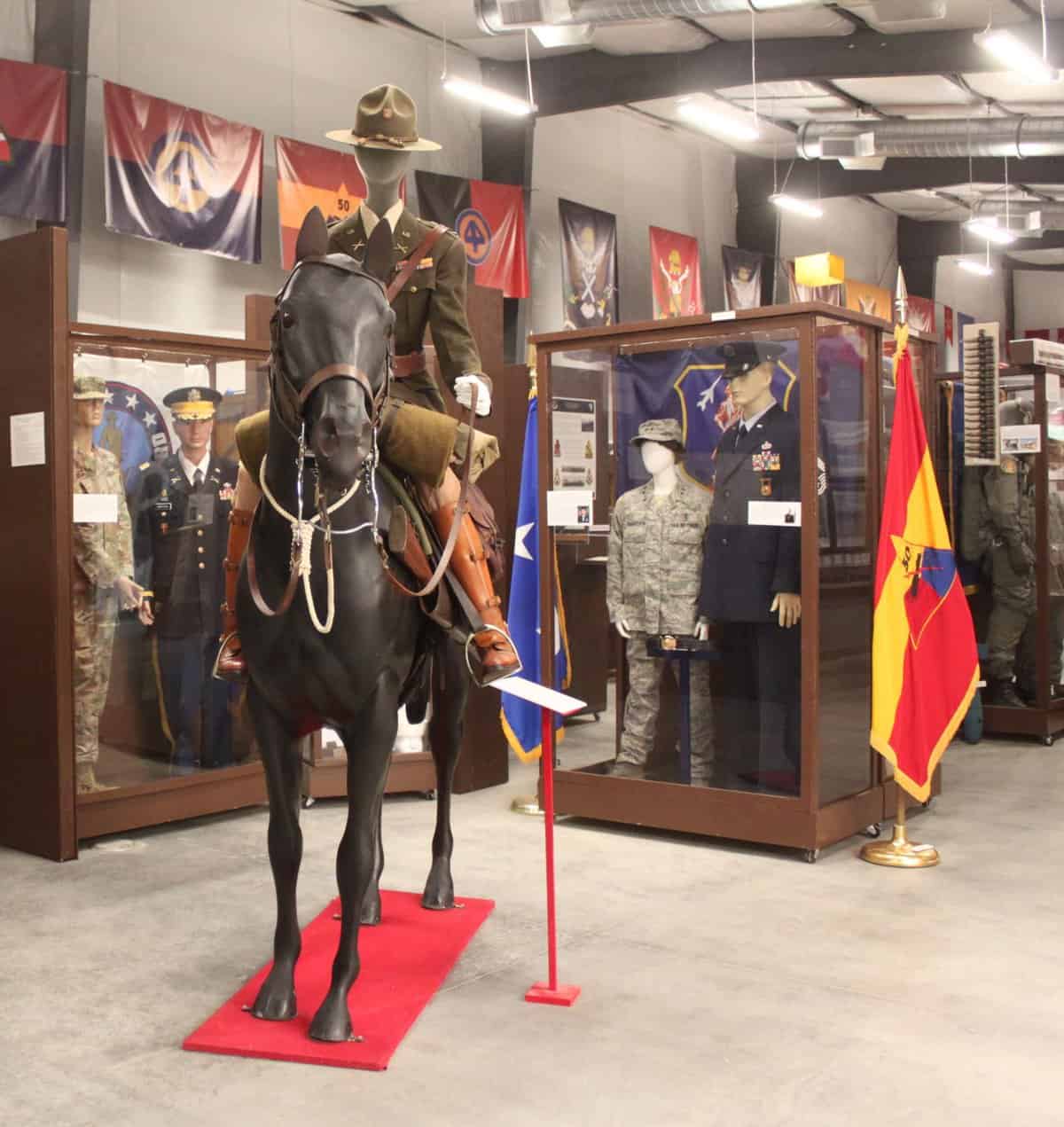With a snip of the scalpel, the new home of the National Guard Militia Museum of New Jersey – located at the New Jersey National Guard Armory at 151 Eggert Crossing Road in Lawrence Township – was opened to the public at a ceremonial ribbon-cutting Oct. 22.
Brigadier General Lisa J. Hou, flanked by museum curator William Kale and Brigadier General Timothy Coakley, used a Civil War-era scalpel to cut the ribbon in a nod to Hou’s medical background. She is a physician and joined the New Jersey National Guard while she was enrolled at the University of Medicine and Dentistry of New Jersey.
Hou is the adjutant general and commissioner of the New Jersey Department of Military and Veterans Affairs.
The National Guard Militia Museum had been housed in the Lawrenceville armory since its founding in 1989. Exhibits were spread out among several small rooms in the armory, until the museum gave up space to the expanding 44th Infantry Brigade Combat Team of the New Jersey National Guard.
To provide a home for the museum, the New Jersey Department of Military and Veterans Affairs arranged for $1.2 million in federal funding to build the new 6,000-square-foot building on the Lawrenceville armory property.
The museum, which is open Tuesday, Friday and Saturday from 10 a.m. to 3 p.m., is staffed by volunteers. It traces the 300-year history of the New Jersey militia, from the 1700s to the 2000s, to include the New Jersey Army National Guard and the New Jersey Air National Guard.
“We feel people need to know the National Guard’s story. They need to know what the citizen-soldiers have done for the country. We need to educate the younger generation,” Kale said.
The museum curator is a retired U.S. Army lieutenant colonel.
On the armory grounds near the museum, an assortment of vehicles and weapons – from Howitzers to battle tanks and an anti-aircraft gun – has been set up for visitors.
Once inside the museum, visitors are greeted by Bucephalus, an artillery horse, and his rider, 1st Lieutenant Jack Eberhardt of the 112th Field Artillery Regiment. The horse-drawn artillery unit was stationed at the armory on Eggert Crossing Road until 1941.
A tour of the museum begins with examples of Revolutionary War uniforms and artifacts – a powder horn, muskets and uniform buttons. It continues through the Civil War, which includes an exhibit case of medical equipment such as the scalpel and a bone saw, and Civil War uniforms and weapons.
There is a replica of an officer’s field desk, field radios from World War I and World War II, and a World War II-era stretcher and blanket. Exhibits of weapons used during the two wars are on view.
Nearby are display cases of World War II German pistols, rifles, a bayonet, a grenade, helmets and a Nazi flag, as well as a Rising Sun flag and similar weapons in the Japanese artifacts cases.
The artifacts were brought to the United States by American soldiers as souvenirs. Many years later, they were donated to the National Guard Militia Museum of New Jersey.
“The museum tells it like it is. These things happened,” Kale said.
Kale and the docents who guide visitors through the museum were praised by Hou, the adjutant general, at the ribbon-cutting ceremony. It’s an occasion to honor the volunteers who committed their time and effort into helping to preserve “our military legacy,” she said.
While the state Department of Military and Veterans Affairs can put the bricks and mortar in place, “it is you – the volunteers, the veterans, the leaders – that place the spirit, the love and the quality of action into a tangible, touchable, visual presentation,” Hou said.
“As Elie Wiesel once said, ‘Without memory, there is no culture. Without memory, there would be no civilization, no society, no future,’ ” Hou said.
“Although Wiesel was speaking as a Holocaust survivor, his words are certainly applicable to preserving the memory of our military members and their selfless service,” she said.
Visitors to the Lawrenceville museum and its counterpart museum at the National Guard Training Center at Sea Girt should remember that a legacy is not just a remembrance, but in the passing on of history to future generations, Hou said.
Hou encouraged the attendees to come back to the museum with their children, grandchildren, nieces and nephews and friends to show them the history of the New Jersey National Guard, which she described as a “proud fighting force” of citizen-soldiers.
“When the present fades to tomorrow and our tomorrows fade to our past, the mark we left on this world is our legacy,” she said.
“Paraphrasing one of the great leaders in American history, Ronald Regan once said, ‘Some people wonder all their lives if they have made a difference. Veterans don’t have that problem,’ ” Hou said.

